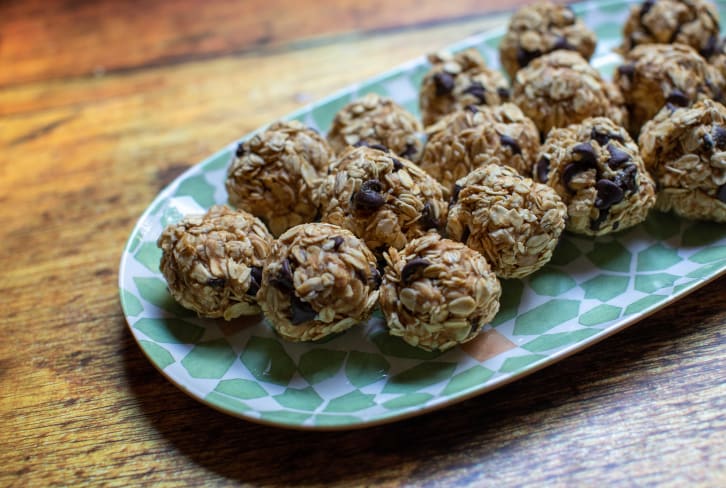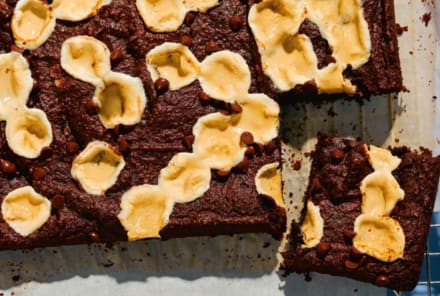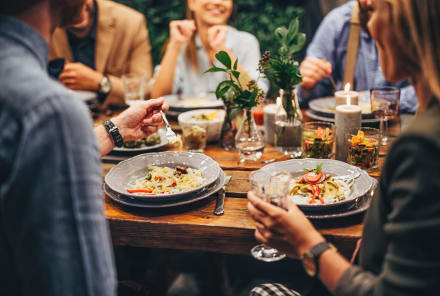Advertisement
I Gave Up Coffee A Year Ago Today. Here's Why I'm Never Going Back

For years I lived under the notion that sliding into my mornings with a steamy cup of joe was the only way to get the creative juices flowing. After all, what do chic French painters, brooding British poets, and their muses all have in common (apart from their drool-worthy studio apartments)? Since the beginning of time, a cup of black coffee has done more to set the scene than any moody jazz soundtrack ever could. Channeling my inner Carrie Bradshaw, I’d grab the biggest mug I could find and fill it to the brim, praying for the brew to jolt me into a state of inspiration.
However, time and time again I was left feeling shaky, unfocused, and frazzled after finishing said coffee. On my never-ending quest to look and feel my best, it became impossible to ignore the fact that my beloved drink was no longer my friend. In fact, upon closer examination, I realized that coffee had never really been that good to me.
As it turns out, whether you can or cannot handle the venti Americano all comes down to your DNA. Yep, researchers have found a gene (PDSS2) that plays a major role in how our bodies metabolize coffee1. If you’re blessed with a stronger expression of this gene, your body processes java at a slower rate, allowing you to feel calm, cool, and collected after downing your latte. However, those of us with weaker PDSS2’s metabolize caffeine too quickly, resulting in dangerous energy dips that prompt symptoms like nausea, headaches, and the shakes.
Sick and tired of feeling sick and wired, I gave up coffee exactly one year ago and haven’t looked back since. Not only did quitting coffee improve my mental and physical health, but it also led me to my latest love—matcha. Clinging to the ritualistic nature of enjoying a morning coffee, I originally drank matcha to fill a void. However, it didn’t take long for this antioxidant-packed tea to steal my heart, truly changing my world for the better.
From espresso fiend to matcha queen, here are the biggest shifts, both mental and physical, that I’ve experienced in my year without coffee:
1. I suffered from fewer migraines.
For as long as I can remember, migraines and headaches of all shapes and sizes have been a part of my daily routine. And while I have yet to find the perfect cure, I do know that cutting coffee has made a noticeable difference in their frequency and severity.
Headaches can spur from caffeine withdrawal, caffeine overdose, and caffeine sensitivity—making coffee an obvious culprit. Luckily one serving of matcha has one-third as much caffeine as a cup of coffee, meaning it’s far less aggravating (and addicting).
2. My superfood and adaptogen game has never been stronger.
Some people make loaded nachos, but I make loaded matchas. Instead of adding creamer and sugar like most people do to their coffees, I add superfoods, healthy fats, and adaptogenic herbs to my lattes—kicking their health level up a solid 10 notches.
Nearly all of my matchas follow this formula, but feel free to get creative when whipping up your own!
Blend all ingredients:
- ½ cup hot water
- ½ cup nut milk (homemade hemp or cashew is my favorite)
- 1 teaspoon matcha
- 1 teaspoon healthy fat (coconut butter, coconut oil, creamy nut butter)
- 1 to 2 teaspoons adaptogens (I rotate between reishi, mucuna pruriens, moringa, ashwagandha, and cordyceps)
- 1 scoop of grass-fed collagen peptides or plant-based protein powder
- a pinch of cinnamon
3. My caffeine consumption became more mindful.
As someone who is sensitive to caffeine, working in an office with unlimited free coffee is dangerous. Nine times out of ten I’d refill my cup out of habit, not necessity, leading to hot flashes, mood swings—the works.
Thankfully, a little more effort goes into making a matcha, forcing me to become increasingly aware of my caffeine intake. Now, creating my morning matcha latte has turned into a ritual that is calming, methodical, and honestly, entertaining.
4. I started being more friendly.
We’ve all been there—your caffeine buzz is fading fast, you feel like you could collapse on the spot, and Rick from accounting comes over and insists on giving you the complete rundown of his weekend from start to finish.
The extreme highs and lows I felt as a coffee drinker made me unable to cope with these situations (which often ended in some unnecessary sassiness on my part). Thanks to matcha, I’m less susceptible to these mood swings and therefore a more patient, pleasant person to be around—a serious win in my book.
5. My physical health dramatically improved.
Call me crazy, but nobody wants to spend their mornings dealing with hot flashes, brain fog, blurred vision, and heart palpitations. I’m still shocked that it took me so long to put two and two together and realize that drinking coffee was negatively affecting my physical health.
Introducing matcha into my mornings has allowed me to feel like a normal human again—one who can think clearly and avoid popping ibuprofen within the first few hours of waking up.
6. I turned into a more productive employee.
My brain on coffee looked like someone who’s been behind the wheel of a really beat-up car for 10 hours straight with no radio. Day after day I would struggle through my mornings, feeling exhausted, unfocused, and easily distracted.
It wasn’t until switching to matcha that I learned that it is, in fact, possible to be your sharpest before noon and that I’m actually way more of a morning person than originally thought.
7. I became more adventurous.
Falling in love with matcha is both a curse and a blessing. On the one hand, it can be frustrating to discover that some of your go-to cafes don’t sell matcha. On the other hand, going on the hunt for your morning green tea latte can help you stumble upon some of the best little eateries that you would have never had the pleasure of finding otherwise. I’ve spent many a weekend scouring the streets of NYC for the perfect matcha, pushing me out of my 'hood and into some of the most Instagrammable coffee shops I’ve ever seen—#score!
Want to use adaptogens to make a caffeine-free elixir? Here's how. Plus, the key ingredient your morning coffee is missing (it might be harming your health!).
Watch Next
Enjoy some of our favorite clips from classes
Enjoy some of our favorite clips from classes
What Is Meditation?
Mindfulness/Spirituality | Light Watkins
Box Breathing
Mindfulness/Spirituality | Gwen Dittmar
What Breathwork Can Address
Mindfulness/Spirituality | Gwen Dittmar
The 8 Limbs of Yoga - What is Asana?
Yoga | Caley Alyssa
Two Standing Postures to Open Up Tight Hips
Yoga | Caley Alyssa
How Plants Can Optimize Athletic Performance
Nutrition | Rich Roll
What to Eat Before a Workout
Nutrition | Rich Roll
How Ayurveda Helps Us Navigate Modern Life
Nutrition | Sahara Rose
Messages About Love & Relationships
Love & Relationships | Esther Perel
Love Languages
Love & Relationships | Esther Perel
What Is Meditation?
Box Breathing
What Breathwork Can Address
The 8 Limbs of Yoga - What is Asana?
Two Standing Postures to Open Up Tight Hips
How Plants Can Optimize Athletic Performance
What to Eat Before a Workout
How Ayurveda Helps Us Navigate Modern Life
Messages About Love & Relationships
Love Languages
Advertisement

These Peanut Butter Cup Protein Bites Make The Perfect On-The-Go Snack
Molly Knudsen, M.S., RDN










